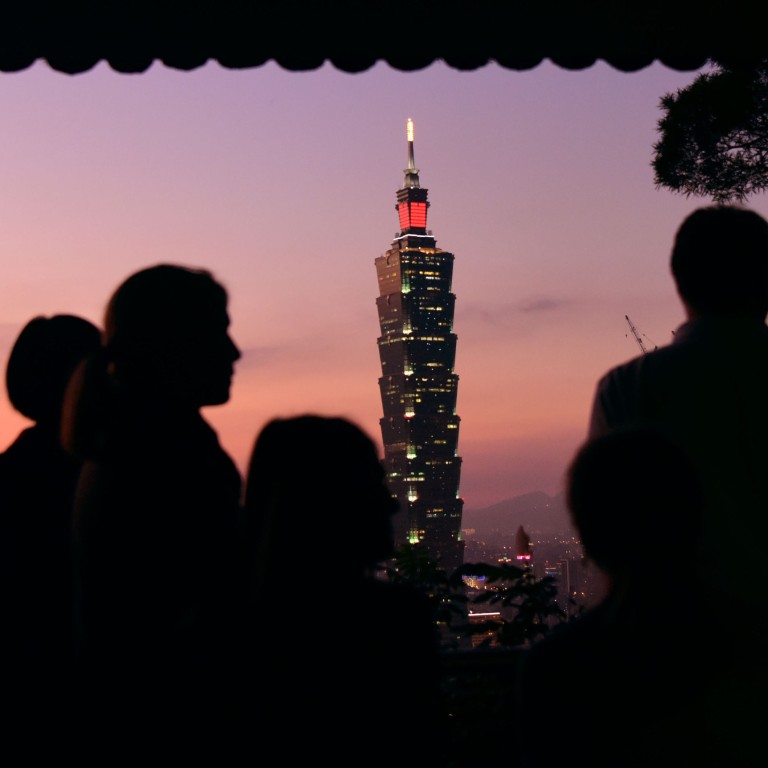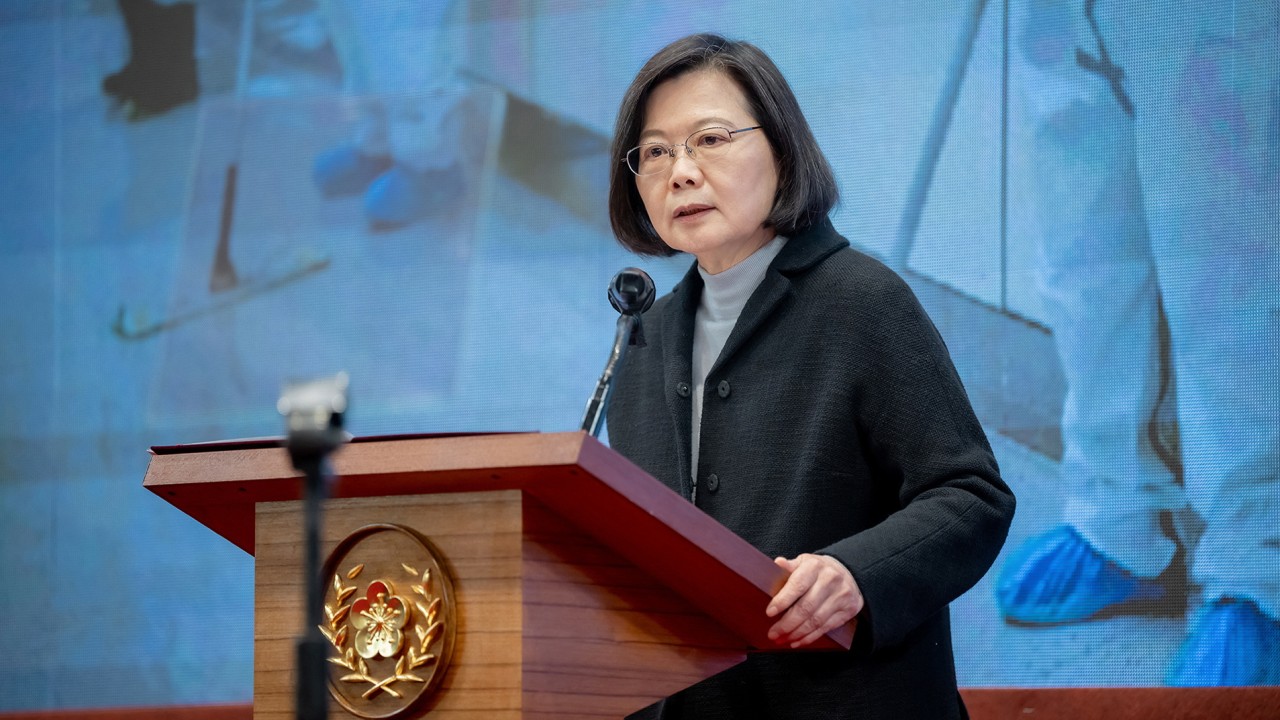
Taiwan visa terms to change, with eye on luring foreign talent to stay competitive in Asia
- Taiwan’s population fell sharply last year, with a historically low number of births and record-high deaths, official figures show
- Officials are attempting to attract 400,000 foreign workers to the island by 2030
With its birth rate plummeting and other parts of Asia competing for overseas talent, Taiwan is moving to relax a series of rules in an urgent bid to expand its pool of foreign workers.
Taiwan’s cabinet, the Executive Yuan, signed off on 52 draft amendments to its Immigration Act on Thursday, and they are now pending legislative approval, according to a statement by the Ministry of the Interior.
Taiwan’s domestic workforce is expected to shrink as the island’s overall population declined by 110,674 people last year, owing to a historically low number of births and the most deaths ever, the ministry said.
Taiwan had previously been forced to weather a 5 per cent decline in the total number of foreigners from 2020 to 2021.
‘Ticking time bomb’: Taiwan’s fertility rate to become world’s lowest by 2035
The changes approved on Thursday “mainly relax residency rules and increase the incentives for high-level talent to come to Taiwan and stay”, the ministry statement says. They are now awaiting the green light from parliament, the Legislative Yuan.
Among those changes, the spouses and non-adult children of foreign-investment visa holders and certain “high-level” professionals will be allowed permanent residency. Foreigners would also have 30 days after their arrival in Taiwan, instead of 15 days, to apply for residency.
Taiwan’s entrepreneur visa terms will also be extended from one to two years, effective from the second quarter, said Jonathan Liao, director of the Taiwan Employment Gold Card scheme. The gold card was launched in 2018 to lure foreign talent with Taiwan residency and flexible work permits not tied to a single employer. About 5,300 people have qualified.
Last month, foreigners got permission to apply for permits under the gold card if they had experience playing for national sports teams, coaching those teams or working in the “sports industry”, according to an online notification from the cabinet on December 26.
Legislators are also expected to review “digital industries” for inclusion under the gold card scheme, Liao told the Post on Thursday.
Inclusion of this field will help Taiwan find software engineers, e-commerce professionals and digital content creators, said Tom Fifield, an Australian who moved to Taiwan in 2013 to work as a community manager for the OpenStack Foundation. In the past, tech-specialised gold card applicants had found it hard to know which field to choose, he said.
Another proposed change to the Immigration Act lets foreign nationals apply for residency if they are divorced or widowed and need to care for minor children in Taiwan.
Hong Kong, mainland China and Singapore are hunting at the same time for top foreign talent to overcome their own low birth rates. Like Taiwan, both Hong Kong and Singapore have eased certain entry requirements to make it easier for foreigners to stay long-term.
‘A permanent home’: why a wave of wealthy Chinese is moving to Singapore
The recent rack of changes will be welcomed, but might not quite win the race for Taiwan, some local expatriates say.
“Hong Kong has been handling professionals for many decades,” said Jonathan Gropper, an American who joined the gold card scheme in 2019 to run numerous e-commerce companies that he started in Philadelphia.
“It is home to a lot of international companies in various industries, it has a banking system that is geared towards international commerce, accommodates entrepreneurs looking for opportunities, and it has a judicial system that is in English and draws upon common law,” he said. “Unsurprisingly, all of this and more give Hong Kong an edge, for which it has been known, for over a century.”
But Hong Kong’s “turmoil” over the past few years might sway foreign talent toward Taiwan “for personal reasons”, he said. Political protests shook Hong Kong in 2019, followed a year later by the National Security Law that sparked international concerns about the law’s impact on free speech.
[I]n Taiwan there’s a definite difference in work culture that international talents aren’t accustomed to
Taiwan may compete for new talent in the future, as it has in the past, for reasons other than career and money, some say. The natural environment, the attitudes of local people and the culture were cited as top reasons by 43 per cent of respondents to the Gold Card Community Survey 2022.
“When it comes to places like Hong Kong or Singapore, you’re going to get a higher wage, and in Taiwan there’s a definite difference in work culture that international talents aren’t accustomed to,” said David Chang, secretary general of the Taipei-based non-profit organisation Crossroads. However, he said that one of the biggest reasons people come to Taiwan and stay is the lifestyle.
Chang, whose group organises events to promote Taiwan’s internationalisation, suggested that the government play up the people and lifestyle elements, to recruit more overseas talent.
“We readily admit we’re early in our journey as a migration nation,” Fifield said. “We’re fortunate to be able to study and learn from leaders such as Singapore, Hong Kong and Australia, and we’re developing quickly.
“These recent changes are just a sign of more to come.”


